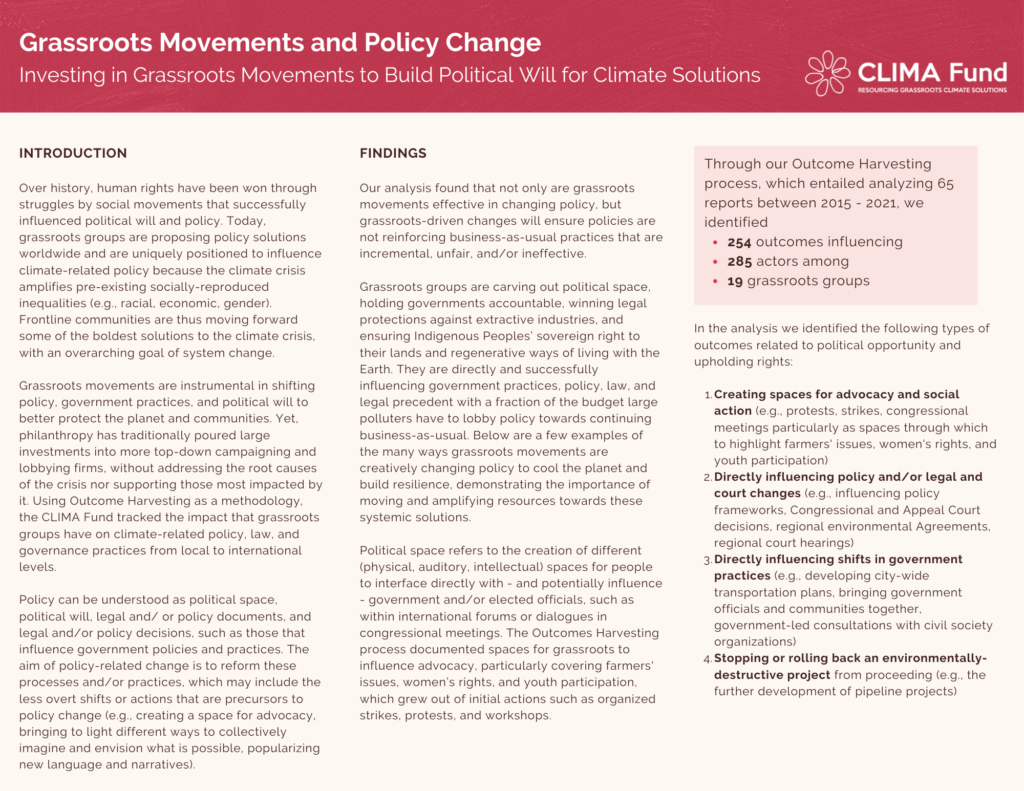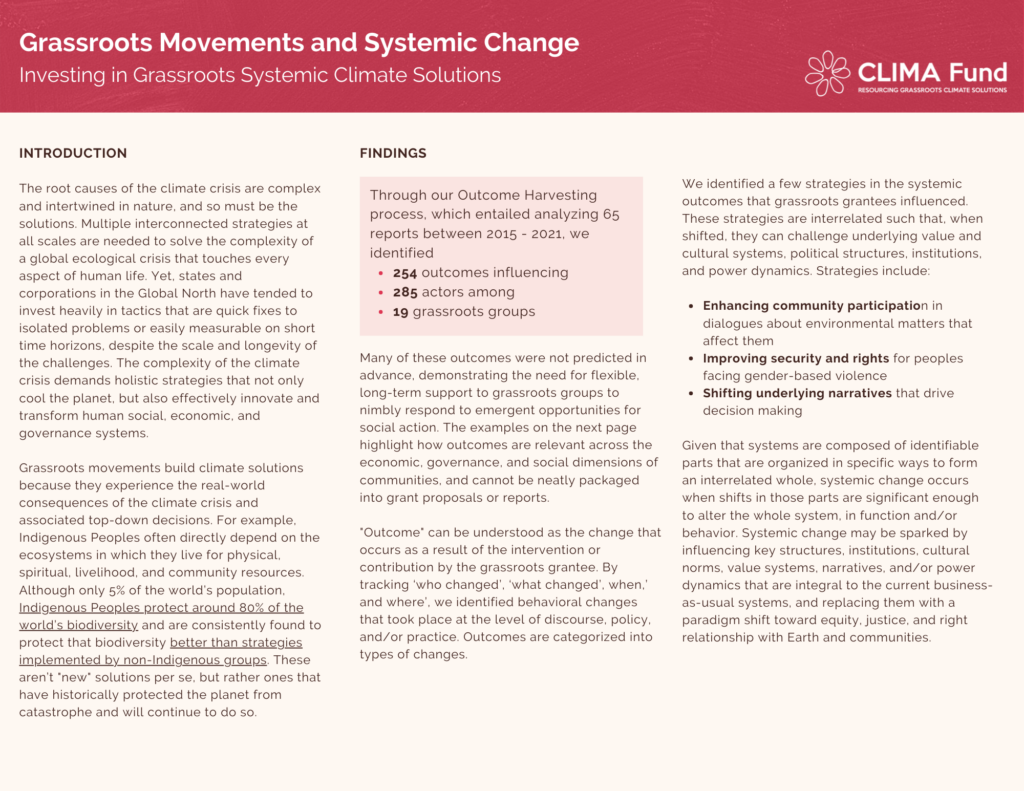Grassroots movements are transforming the landscape of climate solutions globally, addressing the multiplicity of root causes and effects of the climate crisis in lasting ways. For example, grassroots climate justice movements are defending Indigenous land rights in Guatemala, advocating for the creation of freshwater and marine protected areas in Nepal, supporting the revision of the national food and nutrition policy in Zimbabwe, and have contributed to the ratification of the Treaty on the Prohibition of Nuclear Weapons in Fiji.
The CLIMA Fund is pleased to share two briefs on grassroots movements advancing systemic and policy change as they address the root causes of the climate crisis and respond to contemporary socio-political challenges.
As part of our learning and evaluation process, we employed an Outcome Harvesting methodology to learn how our grassroots movement partners are advancing systemic and policy change to address the climate crisis. We analyzed 65 grant reports from 19 of our grassroots partners between 2015 – 2021 and identified 254 outcomes (social and political changes) influencing 285 actors. The Outcome Harvesting process entailed collecting evidence of what has changed (for example, the enactment of a new law) and then identifying how a grassroots partner’s work (for example, demonstrations, advocacy, lawsuits) contributed to that change. The changes created by the grassroots group’s influence on a social actor (for example, local government, national legislators, courts, and tribunals) are called outcomes.
The Outcome Harvesting process helped us to better understand how CLIMA’s funding to grassroots climate action is leading to effective and sustainable change. We have released two briefs capturing just a few examples of how grassroots groups 1) change policy and 2) create systemic change. The briefs demonstrate that grassroots movements are critical for advancing climate action commensurate with the scenarios in the recent IPCC reports. The briefs provide further evidence that grassroots-led change creates results that are long-lasting, effective at cooling the planet, and integral to upholding social justice.
To learn how grassroots movements are philanthropy’s best bet to confront the climate crisis, read Grassroots Movements and Policy Change: Investing in Grassroots Movements to Build Political Will for Climate Solutions and Grassroots Movements and Systemic Change: Investing in Grassroots Systemic Climate Solutions now.

